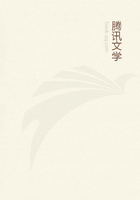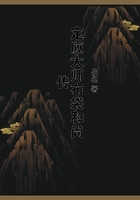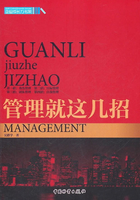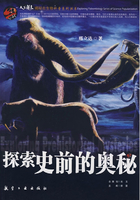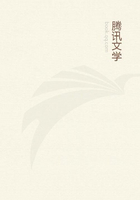We must explain (i) wherein growth differs from coming-to-be and from 'alteration', and ii) what is the process of growing and the sprocess of diminishing in each and all of the things that grow and diminish.
Hence our first question is this: Do these changes differ from one another solely because of a difference in their respective 'spheres'? In other words, do they differ because, while a change from this to that (viz. from potential to actual substance) is coming-to-be, a change in the sphere of magnitude is growth and one in the sphere of quality is 'alteration'-both growth and 'alteration'
being changes from what is-potentially to what is-actually magnitude and quality respectively? Or is there also a difference in the manner of the change, since it is evident that, whereas neither what is 'altering' nor what is coming-to-be necessarily changes its place, what is growing or diminishing changes its spatial position of necessity, though in a different manner from that in which the moving thing does so? For that which is being moved changes its place as a whole: but the growing thing changes its place like a metal that is being beaten, retaining its position as a whole while its parts change their places. They change their places, but not in the same way as the parts of a revolving globe. For the parts of the globe change their places while the whole continues to occupy an equal place: but the parts of the rowing thing expand over an ever-increasing place and the parts of the diminishing thing contract within an ever-diminishing area.
It is clear, then, that these changes-the changes of that which is coming-to-be, of that which is 'altering', and of that which is growing-differ in manner as well as in sphere. But how are we to conceive the 'sphere' of the change which is growth and diminution?
The sphere' of growing and diminishing is believed to be magnitude.
Are we to suppose that body and magnitude come-to-be out of something which, though potentially magnitude and body, is actually incorporeal and devoid of magnitude? And since this description may be understood in two different ways, in which of these two ways are we to apply it to the process of growth? Is the matter, out of which growth takes place, (i) 'separate' and existing alone by itself, or (ii) 'separate' but contained in another body?
Perhaps it is impossible for growth to take place in either of these ways. For since the matter is 'separate', either (a) it will occupy no place (as if it were a point), or (b) it will be a 'void', i.e. a non-perceptible body. But the first of these alternatives is impossible. For since what comes-to-be out of this incorporeal and sizeless something will always be 'somewhere', it too must be 'somewhere'-either intrinsically or indirectly. And the second alternative necessarily implies that the matter is contained in some other body. But if it is to be 'in' another body and yet remains 'separate' in such a way that it is in no sense a part of that body (neither a part of its substantial being nor an 'accident' of it), many impossibilities will result. It is as if we were to suppose that when, e.g. air comes-to-be out of water the process were due not to a change of the but to the matter of the air being 'contained in' the water as in a vessel. This is impossible. For (i) there is nothing to prevent an indeterminate number of matters being thus 'contained in' the water, so that they might come-to-be actually an indeterminate quantity of air; and (ii) we do not in fact see air coming-to-be out of water in this fashion, viz. withdrawing out of it and leaving it unchanged.
It is therefore better to suppose that in all instances of coming-to-be the matter is inseparable, being numerically identical and one with the 'containing' body, though isolable from it by definition. But the same reasons also forbid us to regard the matter, out of which the body comes-to-be, as points or lines. The matter is that of which points and lines are limits, and it is something that can never exist without quality and without form.
Now it is no doubt true, as we have also established elsewhere,'
that one thing 'comes-tobe' (in the unqualified sense) out of another thing: and further it is true that the efficient cause of its coming-to-be is either (i) an actual thing (which is the same as the effect either generically-or the efficient cause of the coming-to-be of a hard thing is not a hard thing or specifically, as e.g. fire is the efficient cause of the coming-to-be of fire or one man of the birth of another), or (ii) an actuality. Nevertheless, since there is also a matter out of which corporeal substance itself comes-to-be (corporeal substance, however, already characterized as such-and-such a determinate body, for there is no such thing as body in general), this same matter is also the matter of magnitude and quality-being separable from these matters by definition, but not separable in place unless Qualities are, in their turn, separable.
It is evident, from the preceding development and discussion of difficulties, that growth is not a change out of something which, though potentially a magnitude, actually possesses no magnitude.
For, if it were, the 'void' would exist in separation; but we have explained in a former work' that this is impossible. Moreover, a change of that kind is not peculiarly distinctive of growth, but characterizes coming-to-be as such or in general. For growth is an increase, and diminution is a lessening, of the magnitude which is there already-that, indeed, is why the growing thing must possess some magnitude. Hence growth must not be regarded as a process from a matter without magnitude to an actuality of magnitude: for this would be a body's coming-to-be rather than its growth.
We must therefore come to closer quarters with the subject of our inquiry. We must grapple' with it (as it were) from its beginning, and determine the precise character of the growing and diminishing whose causes we are investigating.

